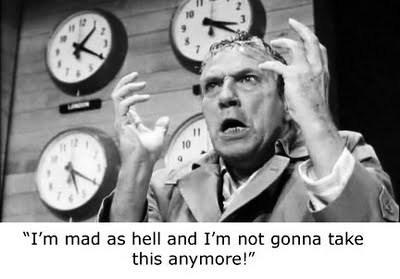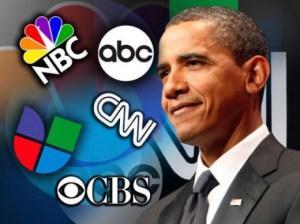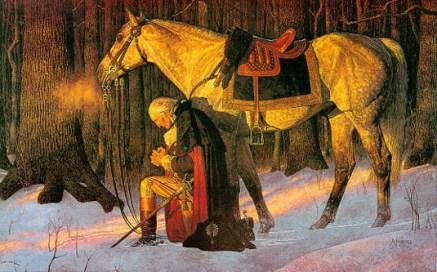
Hint: it’s all about power
The Fourth Estate is the self congratulating term our media wears, aspiring to be an actual branch of government, a power broker. The Fifth Estate is a term used for those who think they will supplant the media with the blogosphere. Today, all manner of media is circling the wagons to protect the current rogue, unconstitutional regime in Washington.
But before either of them came along, there was the pulpit.
Merriam-Webster defines it this way:
fourth estate
noun,often capitalized F&E
: the people and organizations who report the news : journalists as a group
A web page at the University of San Fransisco says the following:
Media as the “Fourth Estate”
Access to information is essential to the health of democracy for at least two reasons. First, it ensures that citizens make responsible, informed choices rather than acting out of ignorance or misinformation. Second, information serves a “checking function” by ensuring that elected representatives uphold their oaths of office and carry out the wishes of those who elected them.
Read the article at http://www.usfca.edu/fac-staff/boaz/pol326/feb12.htm.

What Is The Fifth Estate, Anyway?
If the fourth estate is mainstream media, the fifth is…
By Ivan Sigal
The term “Fifth Estate” explains our collective ability to share information, to create communities, and to organize social movements through online networks. The term originated in an attempt to distinguish the actions and interests of networked societies from those of the mass media, known as the Fourth Estate—a term coined by Scottish philosopher Edmund Burke in the 18th century to describe the press. By acting as a watchdog on other “estates” of the time—clergy, nobility, and secular authorities—the emerging profession that would become known as journalism had elevated itself to the others’ level…
Read the article at http://www.takepart.com/article/2013/10/16/what-is-the-fifth-estate

1,000-member secretive progressive journalist group uncovered
August 6, 2014
WASHINGTON, D.C. – A prominent CNN commentator, the top two political reporters for The Huffington Post, a Reuters reporter, the editor of The Nation magazine, a producer for Al Jazeera America television, a U.S. News & World Report columnist, and approximately two dozen Huffington Post contributors are among the more than 1,000 members of Gamechanger Salon.
Founded by leftwing activist Billy Wimsatt, the group is a secretive digital gathering of writers, opinion leaders, activists and political hands who share information, ideas and strategy via a closed Google group.
The group’s existence was discovered by Media Trackers through an open records request filed with a University of Wisconsin professor who happened to be a member of the network…
Read the whole story at http://eagnews.org/1000-member-secretive-progressive-journalist-group-uncovered/
The Library of Congress records the fact that the pulpits of America played a pivotal role in throwing off the rule of England.

Religion and the Founding of the American Republic
Religion and the American Revolution
Religion played a major role in the American Revolution by offering a moral sanction for opposition to the British–an assurance to the average American that revolution was justified in the sight of God. As a recent scholar has observed, “by turning colonial resistance into a righteous cause, and by crying the message to all ranks in all parts of the colonies, ministers did the work of secular radicalism and did it better.”
Ministers served the American cause in many capacities during the Revolution: as military chaplains, as penmen for committees of correspondence, and as members of state legislatures, constitutional conventions and the national Congress. Some even took up arms, leading Continental troops in battle.
The Revolution split some denominations, notably the Church of England, whose ministers were bound by oath to support the King, and the Quakers, who were traditionally pacifists. Religious practice suffered in certain places because of the absence of ministers and the destruction of churches, but in other areas, religion flourished.
The Revolution strengthened millennialist strains in American theology. At the beginning of the war some ministers were persuaded that, with God’s help, America might become “the principal Seat of the glorious Kingdom which Christ shall erect upon Earth in the latter Days.” Victory over the British was taken as a sign of God’s partiality for America and stimulated an outpouring of millennialist expectations–the conviction that Christ would rule on earth for 1,000 years. This attitude combined with a groundswell of secular optimism about the future of America to create the buoyant mood of the new nation that became so evident after Jefferson assumed the presidency in 1801.
So it all comes down to persuasion
When the leftists, the atheists and the muslims tell you to shut up, don’t listen. Continue preaching. The war of our time is fought in the minds of the public. Don’t let President Lucifer or any of his inner circle spread their lies without opposition. Battle them in every conversation. Shout down every Obama bumper sticker. Heckle every ridiculous utterance that comes out of these deceivers. Scald them with humorous disapproval. Laugh them out of the public square.
“We’re mad as hell, and we’re not gonna take it anymore!”
♞

